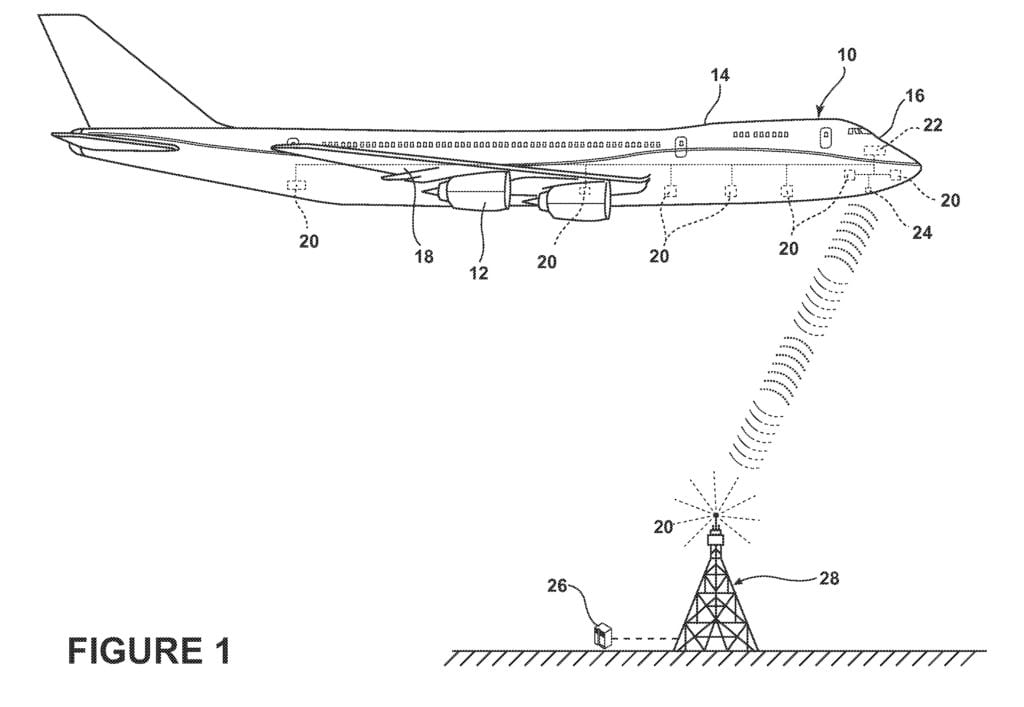
Image from Junaid Zubairi’s patent application, data provided by IFI CLAIMS Patent Services
Junaid Zubairi, a computer and information sciences professor at the State University of New York at Fredonia, has received a U.S. patent for his flight data tracker. It was designed by Zubairi with assistance from four undergraduate students.
Zubairi’s solution would be able to automatically transmit data from the aircraft to distributed ground servers through a wireless link. As the aircraft passes above the ground servers, the data would be transmitted to each server and then integrated together in the main server. The real-time data would be available for post-flight analysis. In a university video, Zubairi describes his solution as “distributed,” “scalable” and “fault-tolerant.”
According to the patent, the solution would be able to determine an operational status of the aircraft, determine a portion of the data to be transmitted and then transmit that portion to a destination. The method also includes assigning a priority value to a subset of flight data based on criteria and assigning bandwidth to at least one of the subsets, based on the priority. Transmission would be based on the priority value and the bandwidth.
Zubairi has been working on the technology since the 2010 to 2011 academic year, the university said, and believes black boxes could begin to be phased out within the next two years. His efforts have been supported by other universities, which have reached out to aircraft OEMs and aviation regulators, including ICAO, for marketing purposes.
ICAO adopted new provisions as amendments to Annex 6 of the Chicago Convention — announced last year. The provisions were designed to prevent the loss of commercial aircraft position reporting when an aircraft is experiencing distress or flying in remote airspace with no radar coverage. Three amendments were to be adopted by 2021:
- A requirement for aircraft to carry autonomous distress tracking devices, which can autonomously transmit location information at least once every minute in distress circumstances.
- The requirement for aircraft to be equipped with a means to have flight recorder data recovered and made available in a timely manner.
- Extending the duration of cockpit voice recordings to 25 hours so they cover all phases of flight for all types of operations.
Some products that comply with ICAO’s provisions include SITAOnAir’s Aircom Flight Tracker, Flyht Aerospace’s Automated Flight Information Reporting System 228 global communication system and Thompson Aerospace’s 1Net Secure Aircraft Tracking module.
The university claims Zubairi’s design is unlike other patented flight tracking systems in that it does not require new hardware installation, does not direct and store data to a single ground-based server and does not use proprietary algorithms.